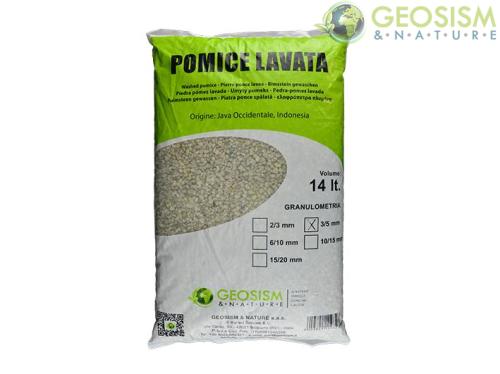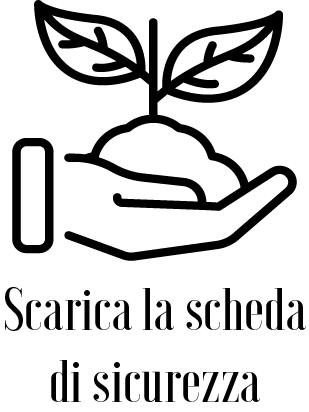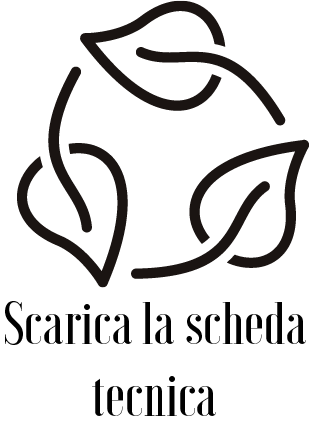Geosism washed pumice 3/5 mm (14 lt)
WASHED PUMICE GEOSISM 3/5 mm (14 lt) .
Pumice is the result of the expansion of effusive magmatic mineral, which has generated a honeycomb product of notable lightness, with high porosity, great water retention and slow release of liquids. As a natural product it is absolutely ecological and therefore advisable and suitable for horticultural applications, in which it is already widely used.
Pumice and lapilli are the product of explosive volcanic eruptions formed following a violent expansion of gases dissolved in lavas of acidic chemical composition: the rapid cooling of the rock prevented its crystallization, trapping the gases inside and generating minerals alveolae expanded in a more or less accentuated manner.
In fact, during the solidification phase, the vapors present in the magma, suddenly released, caused the swelling of the entire mass of the magma and it is during this rapid cooling phase that the differences in the physical structure of the various volcanic aggregates were determined.
The lower viscosity and slower cooling of the lava facilitated the escape of a certain quantity of the gases present in the magma.
This type of pumice, coming from Indonesia, is washed manually in order to eliminate all the fine parts and make the product clean and perfectly draining once used in the construction of cultivation substrates. The washing process is done in a certified way and using groundwater.
CHEMICAL-PHYSICAL CHARACTERISTICS
pH (H 2 O): 7.5;
NON-TOXIC PRODUCT: (free from crystalline free silica) .
MEDIA CHEMICAL ANALYSIS
SiO 2 : 58.46%;
Al 2 O 3 : 14.15%;
Fe 2 O 3 : 2.87%;
CaO: 2.46%;
MnO: 0.09%;
MgO: 0.60%;
Cr 2 O 3 : <0.01%;
Na 2 O: 14.26%;
2O : 3.27%;
You O 2 : 0.31%.
FUNCTIONAL CHARACTERISTICS AND FIELDS OF USE
Lightweight natural aggregate, ideal for:
? rooting substrate (sowings, cuttings, transplants, soilless cultivation and hydroculture);
? preparation of universal soils;
? preparation of specific soils (annual plants, acidophilic plants, succulents, houseplants, lawns...);
? preparation of professional soils for outdoor vegetable and flower nurseries and for protected crops;
? mulch;
? hydroponic crops;
? soilless crops;
? soil amendment;
? hydroculture;
? drainage;
? thermal insulation.
NB: NEWS ON COLOR AND CONTENT
Please note that the color of the material is variable. It depends on many factors including: the extraction point in the quarry and the humidity contained. The color varies from dirty white (when the product is totally dry) to grey-brown or light brown or even brownish with shades of dark yellow (when the product is humid or wet). It is not possible, in any way, to choose between these colors which are found without distinction inside the product. The secondary photograph of this listing, where the product is held in the hand, demonstrates the variability of the shades. By observing advertisements with grain sizes different from this one, it is possible to appreciate the color variations which are mainly given by the degree of humidity of the material at the time the photograph was taken.
It should also be noted that given the particular origin of the product, it may contain small traces of plant roots.













